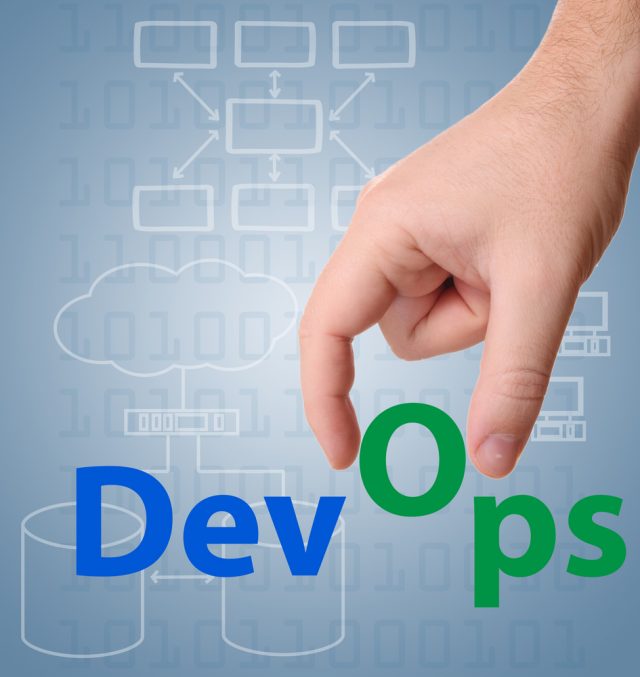4 tips for creating a DevOps implementation strategy

By its very design, DevOps is a disruptive technology -- but one that can profoundly and positively impact how businesses manage and deliver software projects. As one of the most complex technologies to implement, DevOps includes multiple phases critical to achieving successful digital transformation. But, when it’s managed correctly, DevOps is the most powerful tool available in modern software development.
With proper guidance, organizations that take the leap and deploy DevOps will become adept with its unique structure and realize its ability to create and deliver results at the speed modern business demands. While there are no shortcuts to implementing DevOps, general recommendations to apply will benefit any business considering its implementation.
Evaluate Processes
Four main components define DevOps: continuous testing, continuous integration (CI), continuous delivery and continuous deployment (CD). While each segment is simple in terminology, continuous integration and continuous delivery/continuous deployment are stages that can rattle organizations with limited familiarity with DevOps. Acquainting with them is beneficial and becoming adept at all is a hearty achievement.
Adopting sound DevOps practices generates an infrastructure and environment that’s beneficial for running software that developers create. Simultaneously it establishes the process for developing software faster and deploying it in a more automated way.
Enlisting professional expertise to help guide the transformation is recommended. There are areas within current operations, pre-transformation, that should be scrutinized for their ability to adjust.
- Culture Transformation begins with culture. Bringing everyone to the same page, working in the same direction on the same goal will be imperative. The first step to transform is to assess existing culture. Does it function transparently, with everyone clearly understanding their importance in processes and confident in their mental and emotional buy-in? In that case, it is a supportive environment that can move forward confidently.
- Strategizing Assess the business strategy. This includes identifying the core business drivers, their everyday challenges and the initiatives being planned. DevOps is an important piece but not the only one. The goal is to determine how software technology will aid in advancing a business strategy and the role that DevOps will play in it.
- Infrastructure Infrastructure plays an indispensable role in DevOps success. Look to focus on tasks like hardware scaling, adaption execution and infrastructure abstraction in order to build a solid foundation.
- Define Success It’s crucial to draw upon sound measurements and key metrics that will prove indispensable for gauging success. Measurement and its go-to tools are as important when implementing DevOps as they will be for every initiative undertaken once performing in that environment. Among the metrics that will be must-haves are business enablement measurement, cycle times and escaped defects.
Once understanding the general needs for a successful transformation, it will be essential to drill into the specifics inherent to DevOps operational demands. Among them are the following.
- Evaluate processes for automation
- Companies implementing DevOps strategy often find themselves creating and refining products much faster than they ever did while using prior software development frameworks. This favorable appraisal is due in part to automating operations as the implementation of DevOps requires.
- When evaluating where or whether to automate, consider:
- What are our common business scenarios, and how often are we repeating these standard practices?
- How much time does each process take?
- How many people or resources are involved, are they inherent causes of delay in CI or CD, and how much savings will be realized if automated?
- If not automated, will any process lead to a significant amount of errors?
- How urgently should these processes be automated?
- Invest in automation
- Results of the reviews completed above will help guide where to make investments.
- Changes in support of automation can pay for themselves and can generate additional cost benefits. The earlier this is understood, the sooner that automation will receive its due consideration.
- Categorize/Rank tasks by value and priority
- Applying rankings to the evaluation of automation noted above will help reveal the next best steps to take in the digital transformation.
- Separate tasks into urgent and non-urgent categories.
- Rank each to determine priority. Among other details, this will help make clear how many people are affected by the task.
- Seek experienced partner(s)
- Nothing can replace experience. If it’s not already within the organization, seek and acquire outside expertise to facilitate the journey and help ensure its success.
Experience Counts
Investing in DevOps and the automation necessary to transform to modern software development is easy compared to thoroughly customizing the transformation specifically for your business. Yet, the rewards of completing the DevOps transformation are worth the effort, as the organization will find itself operating in a modern environment at the speed and agility of the best.
Creating an effectively managed, fully-functional DevOps strategy moving forward is formidable, too, and failure or success relies on whether or not there’s an accepted plan and expertise at executing the involved techniques.
DevOps implementation has a much lower success rate without the involvement of experience.
It will calm nerves and build outcomes to bring DevOps expertise on board if not already within the organization. That mastery at making iterative improvements will make the business more competitive and lead to faster releases, quicker and more productive feedback, better collaboration and more strategic deployment of AI. Such demonstrated expertise will take and keep organizations a step ahead of the competition.
Image credit: tkemot / depositphotos.com

Mike Watson, senior vice president of Agile product engineering at Excellerate, is a veteran software developer and management professional with extensive experience leading both on-premise and remote teams to successful business outcomes generating millions of dollars in revenue ranging from startups to multinational Fortune 100 companies. Connect with him on Twitter / LinkedIn